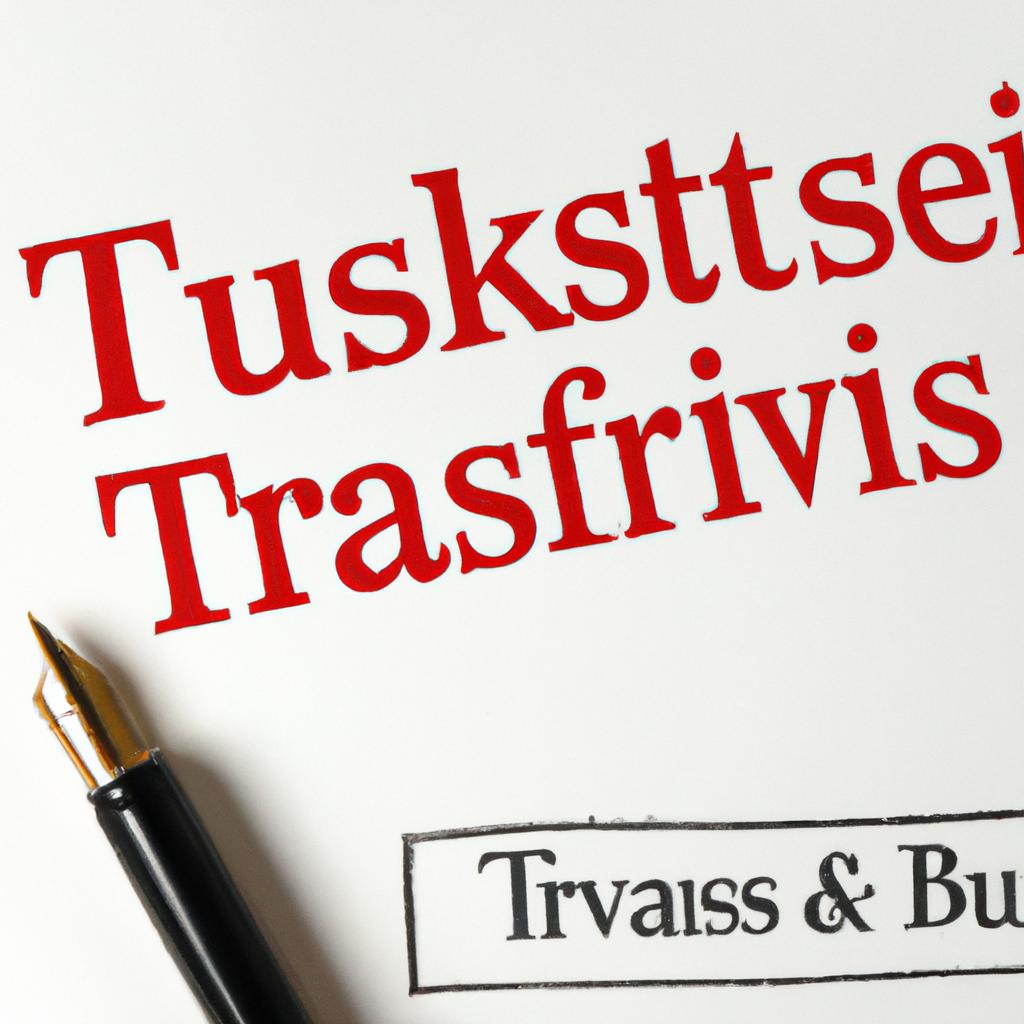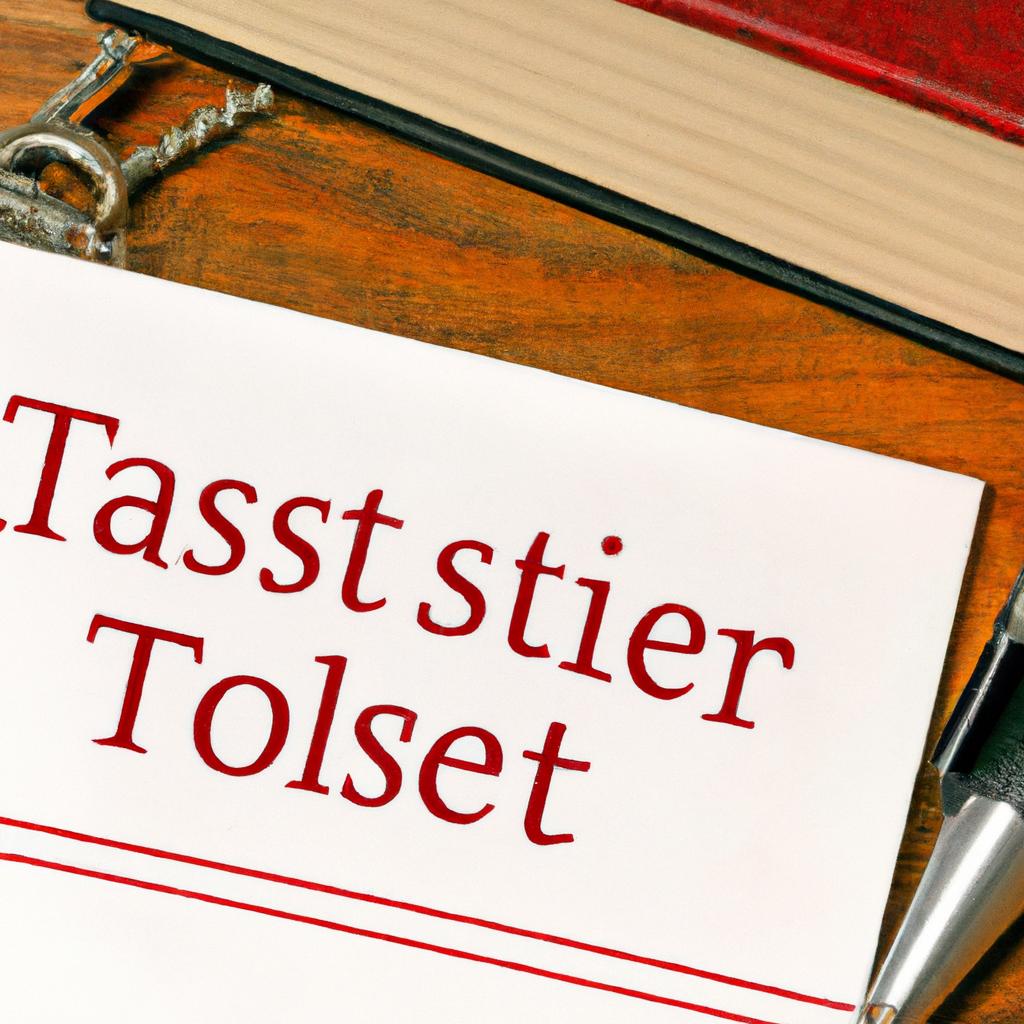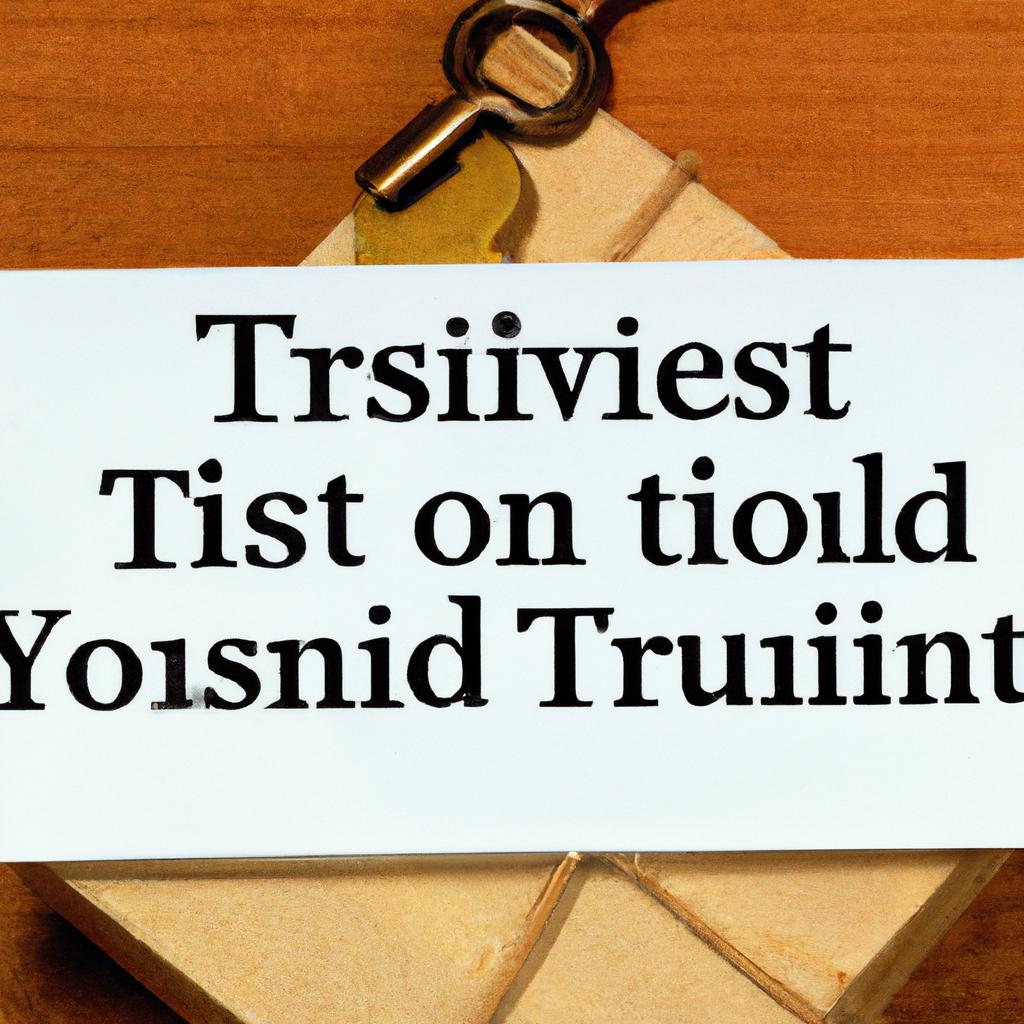In the complex landscape of estate planning, the decision to utilize trusts can often be a point of contention. Are trusts truly worth the time, effort, and resources that they require? As experienced legal professionals at Morgan Legal Group in New York City, we understand the intricacies of trusts and their potential benefits and drawbacks. In this article, we will explore the question: Are trusts worth it? Join us as we delve into the nuanced world of trust planning and uncover the answer to this age-old question.
Exploring the Benefits of Establishing a Trust
When considering the establishment of a trust, it is important to weigh the benefits that such a legal instrument can provide. One key advantage of setting up a trust is the ability to avoid the probate process, which can be time-consuming and costly. By transferring assets into a trust, they can be distributed to beneficiaries without the need for court intervention, saving both time and money.
Additionally, trusts offer a high level of flexibility and control over how assets are managed and distributed. With a trust, the grantor can dictate specific instructions for when and how beneficiaries will receive their inheritance. This can be particularly useful for individuals who wish to provide for minors or individuals with special needs. By establishing a trust, individuals can ensure that their assets are protected and distributed according to their wishes.

Navigating the Potential Drawbacks of Trusts
When considering the use of trusts in your estate planning, it is important to be aware of the potential drawbacks that may arise. While trusts can offer numerous benefits such as avoiding probate, providing asset protection, and ensuring privacy, there are certain factors that should be carefully considered before establishing a trust.
Some potential drawbacks of trusts include:
- Cost: Establishing and maintaining a trust can be expensive, with fees for legal assistance, trustee services, and ongoing administration.
- Lack of control: Once assets are transferred to a trust, the settlor may have limited control over how those assets are managed and distributed.
- Complexity: Trusts can be complex legal instruments that require careful planning and maintenance to ensure they achieve their intended purpose.

Trusts as a Powerful Estate Planning Tool
When considering estate planning options, trusts are often overlooked or misunderstood. However, trusts can be a powerful tool in ensuring your assets are distributed according to your wishes and avoiding probate. Trusts offer a level of control and flexibility that is unmatched by a simple will. Here are some reasons why trusts are worth considering:
1. **Avoiding probate**: By placing your assets in a trust, you can avoid the time-consuming and costly probate process. This means your loved ones can receive their inheritance quicker and with less hassle.

Recommendations for Determining If a Trust is Right for You
In determining whether a trust is right for you, there are several key factors to consider. Firstly, it is essential to assess your specific financial situation and goals to determine if a trust aligns with your overall estate planning objectives. Trusts can offer various benefits, such as minimizing estate taxes, avoiding probate, and providing asset protection for beneficiaries. Additionally, trusts can provide a level of control and flexibility over how your assets are distributed after your passing.
Furthermore, it is important to consult with a qualified estate planning attorney to discuss the different types of trusts available and how they may benefit your unique circumstances. An attorney can help tailor a trust to meet your individual needs and provide guidance on the best course of action. Remember, trusts can be complex legal documents, so it is crucial to seek professional advice to ensure that your assets are protected and distributed according to your wishes.
Q&A
Q: What is a trust and how does it work?
A: A trust is a legal arrangement that allows a third party, or trustee, to hold assets on behalf of beneficiaries. The trustee has a fiduciary duty to manage the assets in the best interests of the beneficiaries.
Q: Are trusts only for wealthy individuals?
A: While trusts are commonly used by the wealthy for estate planning purposes, they can also be beneficial for individuals with modest assets. Trusts can help avoid probate, provide for minors or individuals with special needs, and protect assets from creditors.
Q: What are the benefits of a trust compared to a will?
A: Trusts can offer greater privacy, flexibility, and control over how assets are distributed compared to a will. They can also help reduce estate taxes and avoid the lengthy and costly probate process.
Q: Are there any downsides to setting up a trust?
A: Setting up a trust can be costly and time-consuming, and ongoing fees may be required for administration. Additionally, assets placed in a trust may not be as easily accessible for the trustee as they would be with a will.
Q: How can I determine if a trust is worth it for me?
A: It is advisable to consult with a qualified estate planning attorney to assess your individual financial situation and determine if a trust aligns with your goals and objectives. Remember that each person’s circumstances are unique, so what may be worth it for one person may not be worth it for another.
The Way Forward
In conclusion, the question of whether trusts are worth it ultimately depends on individual circumstances and goals. While trusts offer potential benefits such as asset protection, privacy, and control over wealth distribution, they also come with costs and complexities that must be carefully considered. It is important to weigh the pros and cons, seek professional advice, and tailor a trust strategy that best suits your needs. Trusts can be a valuable tool in estate planning, but like any financial decision, they require thoughtful planning and careful consideration. Ultimately, the decision of whether trusts are worth it is a personal one that should be made with careful consideration of one’s financial goals and priorities.
 Are trusts worth it? This is a common question among individuals considering estate planning options. Trusts have long been associated with wealthy families and individuals, leading some to believe that they are not necessary for the average person. However, trusts can provide numerous benefits for people of all income levels. In this article, we will explore the concept of trusts, their potential benefits, and whether they are worth considering for your estate planning needs.
Are trusts worth it? This is a common question among individuals considering estate planning options. Trusts have long been associated with wealthy families and individuals, leading some to believe that they are not necessary for the average person. However, trusts can provide numerous benefits for people of all income levels. In this article, we will explore the concept of trusts, their potential benefits, and whether they are worth considering for your estate planning needs.
Before delving into the specifics of trusts, let’s start with a basic understanding of what they are. A trust is a legal arrangement in which a person, known as the grantor, transfers their assets to a trustee to manage and distribute to beneficiaries according to the terms of the trust. The grantor sets the rules for the trust, which can include who will receive the trust assets, how and when they will receive them, and any conditions that must be met.
Now, let’s address the question at hand – are trusts worth it? The short answer is yes, and here’s why:
1. Avoiding Probate
One significant benefit of a trust is that it can help avoid the lengthy and costly probate process. When a person passes away, their assets must go through probate court, where a judge will determine the validity of the will and oversee the distribution of assets. This process can take months, even years, and often comes with hefty court and attorney fees. With a trust, assets are distributed according to the terms of the trust, which eliminates the need for probate court altogether.
2. Maintaining Privacy
Probate proceedings are a matter of public record, meaning that anyone can access information about the deceased’s assets and beneficiaries. For those who value privacy, creating a trust can be a useful tool. Trust documents are not made public, and the distribution of assets is handled privately between the trustee and beneficiaries.
3. Protecting Assets
For individuals concerned about their beneficiaries’ financial management skills, a trust can offer protection and oversight. With a trust, the grantor can outline specific terms for asset distribution, such as only releasing certain amounts of money at certain intervals or when certain conditions are met. This can be particularly beneficial for minor beneficiaries or those with disabilities who may not be capable of managing large sums of money independently.
4. Tax Planning
Another significant advantage of trusts is their potential for tax planning. Certain types of trusts, such as irrevocable trusts, can help minimize estate taxes by removing assets from the estate’s taxable value. Additionally, trusts can allow for the transfer of assets to beneficiaries without incurring gift taxes.
5. Flexibility
Trusts offer a great deal of flexibility, allowing for customization to fit the specific needs and goals of the grantor and beneficiaries. For example, a trust can be created to provide for a surviving spouse while also ensuring that the assets go to children from a previous marriage after the spouse’s death. Trusts can also be used to provide for minor beneficiaries until they reach a certain age or to support charitable organizations.
When considering whether trusts are worth it, it is essential to understand that they are not a one-size-fits-all solution. Each person’s situation is unique, and the effectiveness of a trust will rely on factors such as the type of trust selected, the value and type of assets, and the goals and needs of the grantor and beneficiaries. It is vital to consult with an experienced estate planning attorney to determine the best type of trust for your specific situation.
Case Studies:
Let’s consider a couple of scenarios to illustrate the benefits of trusts:
1. Michael and Sarah are in their 60s and have three children. They have a substantial estate consisting of a primary home, vacation property, and investment accounts. They want to avoid the lengthy probate process and protect their assets for their children. By creating a revocable living trust, they can transfer their assets into the trust, where they can be managed and distributed according to their wishes, avoiding probate and minimizing potential estate taxes.
2. Lisa has a 10-year-old daughter, Emily, with special needs. Lisa wants to ensure that Emily is taken care of after she is gone. By setting up an irrevocable special needs trust, Lisa can provide for Emily’s care without impacting her eligibility for government benefits, such as Medicaid.
Firsthand Experience:
I am an only child, and I have always known that I would inherit my parents’ assets after they pass away. When they consulted with an estate planning attorney, they learned about the benefits of creating a trust to manage their assets and distribute them to me. Besides avoiding probate, they were also able to customize the trust to ensure that I wouldn’t receive a lump sum of money when I turn 18. Instead, the trust will provide for my needs and education until I turn 25, and then I will receive my inheritance in installments. This gave them peace of mind knowing that I would have support and guidance in managing my inheritance.
Practical Tips:
If you are considering setting up a trust, here are a few practical tips to keep in mind:
– Work with an experienced estate planning attorney who can help you determine the most suitable type of trust for your needs.
– Research and understand the tax implications of the type of trust chosen.
– Regularly review and update the trust documents to reflect any changes in your circumstances or wishes.
– Consider the personalities and capabilities of potential trustees and beneficiaries before finalizing the trust.
In conclusion, trusts can be a valuable tool for estate planning, offering various benefits, such as avoiding probate, maintaining privacy, protecting assets, tax planning, and flexibility. They can be a wise investment for those looking to pass on their assets to their loved ones in a specific and controlled manner. However, trusts may not be the best fit for everyone, so it is vital to consult with an attorney to determine if they are worth considering for your unique situation.

